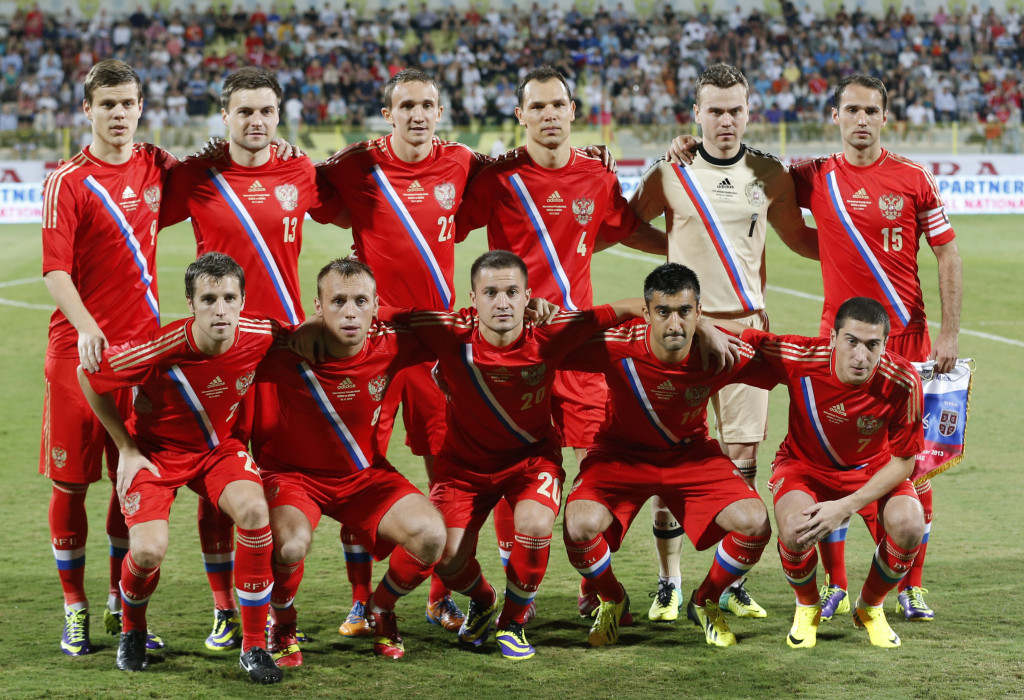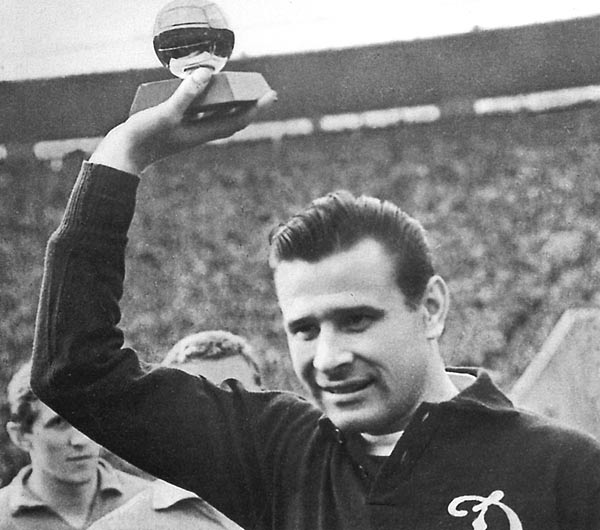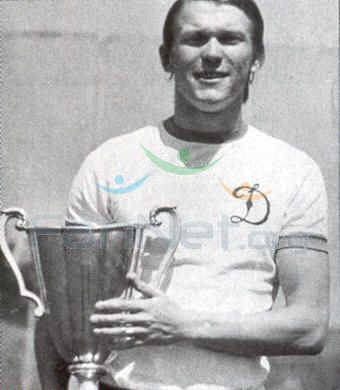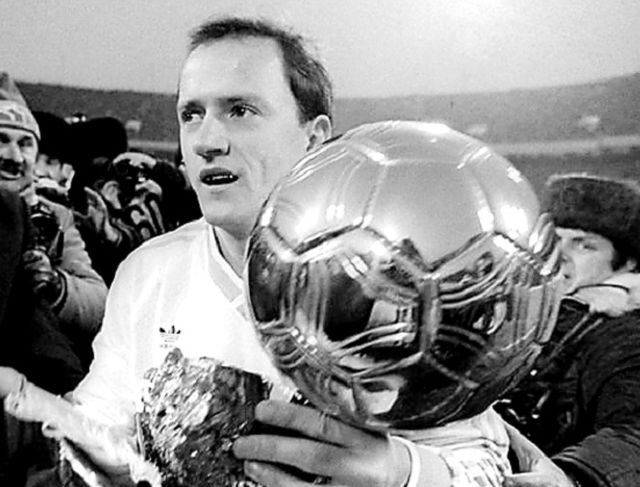Russian Football: to Be or Not to Be?
1,248 views / 23 Aug 2015

Russia national team pose for a group photo prior to their international friendly football match against Serbia in Dubai’s Al Wasl stadium on November 15, 2013. KARIM SAHIB/AFP/Getty Images
Imagine that you are watching Russia’s National Football team bravely defending against a microstate and finally securing an energy-sapping 1:0 victory. You might start racking your brain over why such a big country can’t pick out 11 capable men who can show at least a decent performance, not to speak of winning something on the international stage. Let’s try to find out.
By a Reader of Russian Accent
The primary reason I see is that Russia has an underdeveloped system of sports schools for children and youth in comparison with Europe, for example. This means that youngsters are mastering their skills right in the street and on rare sports grounds, and you can seldom find a decent football stadium for public use in Russia. Basically, a great deal of talents is never brought to light.
The second significant reason is the stranglehold of foreign players. Football clubs cannot (or do not want to spend time on it) find young and promising Russian players, so they simply buy footballers from abroad. But this closes the doors on Russian players in turn, and the vicious circle goes on.
Let me give you a brief prehistory of this process. The Soviet football did not involve foreign players, so a lot of homegrown sportsmen used their chances – and therefore the national squad was quite strong. The USSR Football team won the European championship in 1960 and the Olympics in 1956 and 1988. FC Dynamo Kiev won the UEFA Cup Winners Cup twice, and FC Dynamo Tbilisi achieved this height once.
Goalkeeper Lev Yashin, strikers Oleg Blokhin and Igor Belanov were awarded the Ballon d’Or.
After the fall of the USSR clubs were allowed to invite foreign footballers. On the one hand, it created competition, which is a good thing in my book, but on the other hand, managers have preferred to buy a seasoned professional from abroad rather than to spend time bringing up a young native player.
To give you a better picture, let me cite the example of the Russian team that won the European championship in 2006 in the under-17 age category. They must be around 26 now, in their prime. However, hardly any athlete from that budding team is now playing in Russia’s top league. The young men couldn’t rival with more experienced foreign players, and wasted their talents.
In contrast, their foreign counterparts such as Germany’s Tony Kroos are shaping the contemporary football.
Understanding this problem, Russian football authorities limited the number of foreign players. Currently, it is 6+5, which means that at least 5 Russians must play for each team on the pitch. However, the medal has the other side: some Russian players think that this scheme secures their place on the pitch just because of their nationality, and stop training hard. Moreover, surprisingly, Russian clubs pay very high salaries to players which makes them too relaxed. For example, Samuel Eto’o and Hulk came to Russia for money, though they had good prospects of playing in Europe’s leading leagues.
The same is true for Russian players. They now have no material stimulus to show their best and move to Europe because no one will pay them as much as they earn now. For instance, forward Alexander Kokorin, who scored only 10 goals last season, earns more than Juventus’ Paul Pogba or Carlos Tevez (29 goals).
In addition to that, Russian football suffers from the calendar change: previously, the season started in the spring and ended in late autumn, now it begins in August and wraps up in the spring. That means games are not played in the summer, the best time for outdoor sports in Russia. The bosses wanted to fit into the European football calendar, but they disregarded the climate of Russia. Now they are mulling over moving to the old pattern again.
As for coaches, a new wave of young specialists, who starred in 1990s as leading players, is gaining momentum, and they have started managing teams. And this, in my opinion, is a factor that may really bear fruit.
Now, let me briefly outline the achievements of the Russian football over the last decade.
Russia, led by Dutch coach Dick Advocaat, did an excellent job during the Euro-2008 games, unexpectedly showing tremendous physical form and a very attractive playing style. Russia defeated the Netherlands 3:1 and won the bronze medals. Unfortunately, this short flash remains the brightest achievement so far.
The team performed so well that several players including Andrei Arshavin and Roman Pavlyuchenko moved to England.
Currently the team is ridiculously having great problems in a really easy qualifying group trying to make it to the Euro-2016 in France.
On the club level, CSKA and FC Zenit won the UEFA Cup in 2005 and 2008 respectively, with Zenit beating Manchester United for the UEFA Supercup the same year.
In conclusion I would say that though I can’t see a hundred-per-cent working method of bringing up football to a better level in three years, I still hope that Russia can diligently prepare and cheer fans during the home FIFA World Cup in 2018.
The views and opinions contained in this article are those of the author. They do not necessarily represent the views of Russian Accent.
Stay tuned and be social, follow us on Twitter @RussAccent, like our page on Facebook/raccent and Vk.com/r_accent. Let’s be friends!
POST A COMMENT
Your email address will not be published. Required fields are marked *



comments (0)
Write a comment share your opinions with others.